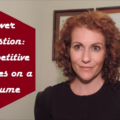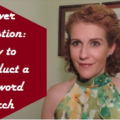Over the last number of years, more and more people have found themselves between successes for longer periods of time. This, for the most part, has had to do with the increased trend of organizational downsizing. As a result, many job seekers will either embellish the dates of employment on their resumes in an attempt to close some of their employment gaps or will embellish their experience in an attempt to elevate their profile. This can tend to follow through to a job interview as well.
That said, honesty is the best policy. There are ways to frame your experience on your resume or in your interview answers to highlight the great experience you have while keeping your integrity intact.
How to Avoid Embellishing on your Resume
When considering any employment gaps you may have, most employers are aware of the increased frequency of corporate downsizing. As such, it matters very little if a person had been downsized from their previous position. It does matter, however, if a person lies about the dates or circumstances. In fact, it is very easy for an employer to uncover the truth through employment verification and reference checks. Exaggerating on your dates of employment could put you in a bad light.
In terms of your work experience, it may be tempting to elevate your profile. To illustrate this, I’ll use the example of a Customer Service Team Lead who changes their title to Customer Service Manager. The difference might seem like semantics, however, the difference in title can indicate a higher level of authority. As an alternative to changing the job title, consider framing your resume to highlight your accomplishments instead. Using our example, this person may state under their accomplishments that they were promoted to team lead in six months. They could provide further context by adding that this promotion occurred in half the time that other team lead promotions have occurred. Of course, this is assuming that both the promotion and timing are truthful statements.
How to Avoid Embellishing in a Job Interview
It can be tempting to embellish your experience while in a job interview. After all, there is a job on the line and you want to show that you are the best person for that job. The downside is that you paint yourself into a corner, especially if you are asked follow-up questions.
Again, it all comes down to framing your answers. Using another example, let’s say you were asked if you have experience using a particular software program, System A. Instead of saying yes and risking follow up questions, you could say that although you don’t have experience with that particular system, you are a quick learner. Follow up by saying that in your previous roles you were able to quickly learn System B and System C, and became so proficient in these systems that you were considered a super user.
By framing your answers in this way, you can demonstrate your transferable skills and ability to learn quickly while keeping your integrity intact.
Final Thoughts
As I’ve said before, honesty is always the best policy. Further, keep in mind Murphy’s Law: whatever can go wrong will go wrong. The one thing that you choose to embellish on your resume or in a job interview might be that one thing that is thoroughly checked by an employer. If the employer determines that you were not being honest, this could put you in poor light. Further, it may also result in a negative hiring decision.
I hope you found this post helpful. If you have any additional insights, or would like to share your experience, I’d love to hear from you. For personalized advice, click here.
Until next time, happy hunting!














